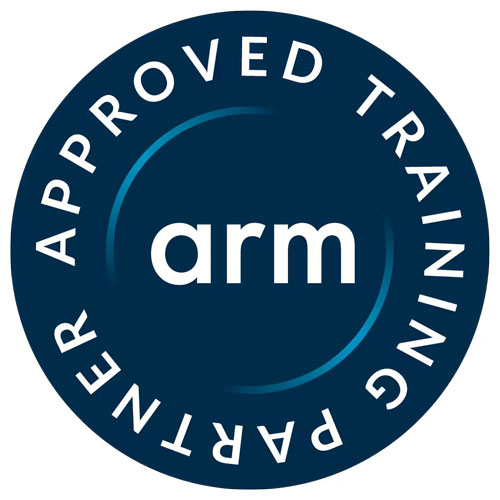Introduction
Role of SystemC and TLM • Evolution of TLM within OSCI • TLM requirements and use cases • Coding styles • TLM-2.0 structure and architecture • Interoperability layer • Utilities • The OSCI TLM-2.0 release kit and documentation
TLM-2.0 Architecture
Initiators, targets, and interconnect • Initiator and target sockets • Pass-by-reference • Forward and backward paths • TLM-2 core interfaces • Blocking versus non-blocking transport • Standard socket classes • Socket binding • Introduction to the generic payload and base protocol
Blocking Transport Interface
Blocking transport interface • Timing annotation • Temporal decoupling • Quantum keeper • Global quantum • Synchronization-on-demand • Loosely-timed coding style
Generic Payload
Generic payload attributes • Mutability • Command, address and data attributes • Byte enables • Streaming • Response status • Generic payload memory management
Non-blocking Transport Interface
Non-blocking transport interfaces • tlm_sync_enum • Forward, backward and return paths • Phases • AT timing model • Base protocol rules • Early completion • Pre-emption • AT timing annotation • Payload event queues • Approximately-timed coding style • Request and response exclusion rules • Back-pressure • AT interconnect
Convenience Sockets
Simple sockets • b/nb conversion • Tagged sockets • Multi-sockets • Coding interconnects and address translation • Hierarchical binding • Passthrough sockets
Direct Memory and Debug Transport Interface
Direct memory versus debug interfaces • Direct memory interface • DMI transaction type • DMI descriptor • Rules for granting and denying DMI • Generic payload DMI hint • Address translation for DMI transactions • Debug transport interface • Debug transport transaction type
Extensions
Kinds of extension · The extension mechanism • Generic payload extension methods • Extension base class • Low-level extension programming • deep_copy_from • update_extensions_from • Extension memory management • Auto extensions • Sticky extensions • Memory-manager-agnostic extensions • Instance-specific extensions
Endianness
TLM-2 endianness principles • Organisation of the data array • Mixed-endian systems • Address alignment issues • Part-word transfers • Width conversions • Endianness helper functions • Endianness conversion functions • Arithmetic mode • Byte order mode • Tuning for simulation speed
Protocol types
tlm_phase • Extended phases • Ignorable phases • Protocol types • tlm_base_protocol_types • Defining new traits classes • Guidelines for protocol creation • Bridges • Bus snooping using DMI extensions
Analysis ports
Analysis interface • Analysis port • Subscribers • When to deep-copy transaction objects
Other examples
Source code examples to use in your own projects • AT initiator types • AT target types • Permutations of the forward, backward and return paths • Full AT interconnect implementation • Implementing exclusion rules and transaction queuing • Mixed AT/LT components • Base protocol checker • Atomic operations and transaction locking using extensions




